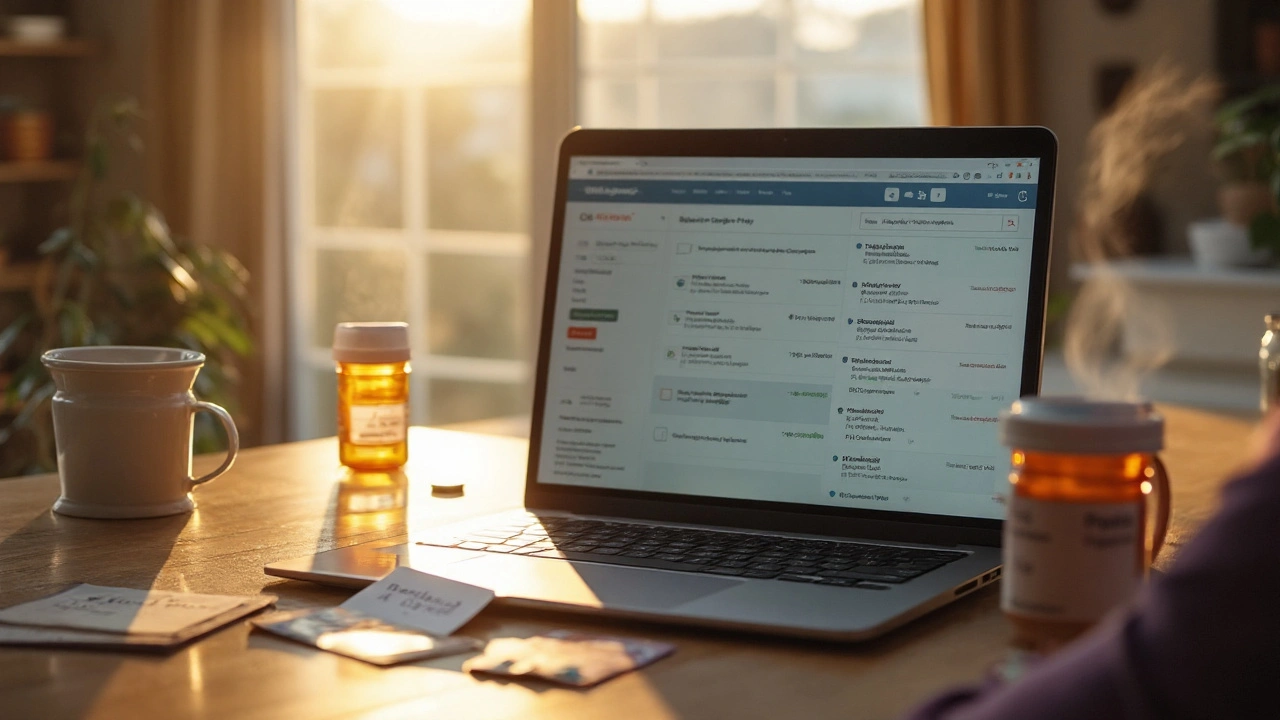OTC Heartburn Treatment: Quick Relief Options
If you’re battling that burning feeling after a big meal, you don’t need to wait for a prescription. Over-the-counter (OTC) products can calm the pain in minutes. Below we break down the most common options, how to use them safely, and the signs that mean it’s time to call a doctor.
Common OTC Antacids and How They Work
Antacids are the go‑to for fast heartburn relief. They contain compounds like calcium carbonate, magnesium hydroxide, or aluminum hydroxide that neutralize stomach acid right where it hurts. A chewable tablet of Tums (calcium carbonate) can start working in under five minutes, while a liquid Alka‑Seltzer (magnesium + aluminum) offers a soothing fizz that coats the stomach lining.
Another class, H2 blockers (e.g., ranitidine, famotidine), doesn’t neutralize acid instantly but reduces the amount your stomach makes over several hours. They’re useful if you need longer‑lasting relief, such as after a late‑night dinner. Finally, you’ll find OTC proton‑pump inhibitors (PPIs) like omeprazole. These need a day or two to kick in, but they’re great for frequent heartburn that’s messing with your sleep.
When you pick a product, read the label for dosage and any warnings. For most adults, the standard dose of calcium carbonate is 2–4 tablets every 2–3 hours, but never exceed the daily max listed on the package. If you have kidney issues, avoid high‑magnesium formulas and talk to a pharmacist first.
Practical Tips for Safe Use
Take antacids after meals, not on an empty stomach, unless the label says otherwise. Standing or sitting upright for at least 30 minutes after taking the medication helps it work better. Avoid mixing antacids with calcium‑rich foods or supplements if you’re already on a calcium‑heavy diet; too much calcium can cause constipation or kidney stones.
Watch out for interactions. Antacids can lower the absorption of certain prescription drugs like antibiotics or thyroid meds. If you’re on any prescription, space the antacid dose at least two hours apart from those meds.
Keep a symptom diary. Note what you ate, how strong the burn was, and which product you used. Over time you’ll spot patterns—maybe spicy tacos or coffee are the culprits, and a specific antacid works best for you.
When to See a Doctor
OTC relief is fine for occasional heartburn, but if you need medication more than twice a week, it’s time to get professional advice. Warning signs include persistent pain that lasts more than three weeks, difficulty swallowing, unexplained weight loss, or vomiting blood. Those could hint at a more serious condition like gastroesophageal reflux disease (GERD) or an ulcer.
Also, if you’ve tried multiple OTC options and none calm the burn, schedule a visit. A doctor can run tests, prescribe stronger medication, or suggest lifestyle changes that go beyond pills. Remember, heartburn isn’t just a nuisance—it can damage the esophagus if left untreated.
Bottom line: OTC heartburn treatments are effective, inexpensive, and easy to use for occasional flare‑ups. Choose the right product, follow dosing rules, and keep an eye on your symptoms. When the burn becomes a regular visitor, get a professional opinion to protect your gut and stay comfortable.
- By Leona Ashfield
- Health
- 20 Comments
Buy Generic Nexium (Esomeprazole) Online Cheap: Safe 2025 Guide
Want cheap generic Nexium online without the risks? Here’s a clear 2025 guide: prices, safe buying checks, side effects, comparisons, and smart ways to save.
